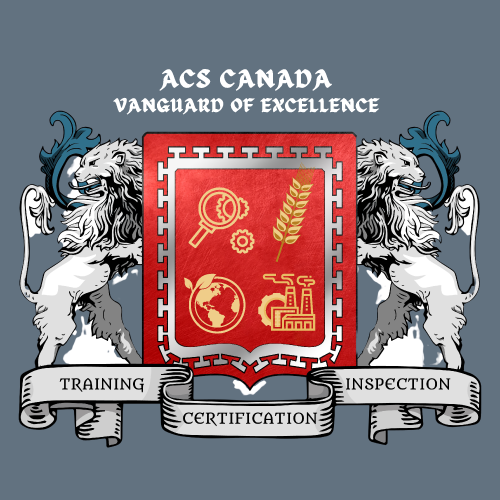Non-GMO CERTIFICATION

FOOD AND AGRICULTURAL
WHAT IS A GMO?
A GMO, or genetically modified organism, is a plant, animal, microorganism, or other organism whose genetic makeup has been modified in a laboratory using genetic engineering or transgenic technology. This creates combinations of plant, animal, bacterial, and virus genes that do not occur in nature or through traditional crossbreeding methods.
The genetic modification affects many of the products we consume on a daily basis. As the number of GMOs available for commercial use grows every year, the Non-GMO Project works diligently to provide the most accurate, up-to-date standards for non-GMO verification.
In order for a product to be Non-GMO Project Verified, its inputs must be evaluated for compliance with our standard, which categorizes inputs into four risk levels:High-Risk
The input is derived from, contains derivatives of, or is produced through a process involving organisms that are known to be genetically modified and commercially available. Alfalfa, Canola, Corn, Cotton, Papaya, Soy, Sugar beet, Yellow summer squash/zucchini, Animal products, Microbes, and enzymes, Potato.
Low-RiskThe input is not derived from, does not contain derivatives of, or is not produced through a process involving organisms that are presently known to be genetically modified and commercially available. Lentils, Spinach, Tomatoes, Sesame seeds, Avocados.
Non-RiskThe input is not derived from biological organisms and is not, therefore, susceptible to genetic modification.
Monitored RiskThe Non-GMO Project carefully monitors the development of new genetically engineered products; we are currently tracking close to 100 products. Of those, we have included the following in our surveillance program, either because they will likely soon be widespread or because of known instances of contamination from GMOs. Flax, Mustard, Rice, Wheat, Apple, Mushroom, Orange, Pineapple, Camelina (false flax), Sugarcane, Tomato.
Though there are only several GM crops that are widely available, they are commodity crops that often get further processed into a variety of ingredients. These high-risk ingredients are typically present in packaged products such as Amino acids, alcohol, aspartame, ascorbic acid, sodium ascorbate, citric acid, sodium citrate, ethanol, flavorings (“natural” and “artificial”), high-fructose corn syrup, hydrolyzed vegetable protein, lactic acid, maltodextrins, molasses, monosodium glutamate (MSG), sucrose, textured vegetable protein (TVP), xanthan gum, vitamins, vinegar, yeast products.
Everyone has a right to know what is in their food and deserves access to non-GMO choices. Preserving and building the non-GMO supply chain is a critical step in transitioning toward a non-GMO food supply for future generations. By encouraging a non-GMO seed supply, we are supporting the restoration of traditional seed breeding and the right of farmers to save and plant their own seeds and grow varieties of their choice. A verified non-GMO system supports organic agriculture by reducing contamination pressure and protecting the supply of non-GMO seed. Everyone deserves an informed choice about whether or not to consume genetically modified organisms.
NON-GMO APPROVAL CERTIFICATION PROCESS
Allow us to shed light on the framework of our non-GMO approval certification program. Our program is anchored upon the following pillars:
1. Manufacturer's claim: To obtain certification, it is imperative for you to substantiate your assertions by presenting compelling evidence that your facility diligently implements processes to ensure the complete absence of GMO in your products. Initiating the certification process entails completing our comprehensive non-GMO application form, where you will provide meticulous details regarding your production processes and facility management.
2. Accredited laboratory test reports: To further reinforce the credibility of your claims, we require your product samples to undergo rigorous laboratory testing. However, we exclusively accept results from laboratories that have obtained accreditation and recognition from the International Accreditation Laboratory Council (ILAC). This rigorous criterion underscores our unwavering commitment to unwavering precision and accuracy.
3. Third-party independent validation: To ensure an impartial evaluation, ACS engages an independent third-party auditor who conducts a comprehensive review of your application and meticulously scrutinizes the results of your testing. With utmost fairness, we meticulously assess whether your products align with our stringent non-GMO approval certification requirements, offering a recommendation for either certification approval or rejection.
It is vital to note that our non-GMO approval certification carries a validity period of one year, necessitating reapplication upon expiration to uphold your certification. We hold our responsibility in the highest regard, which is why we regularly conduct audits or inspections to ensure the continual adherence of your facility to our certification requisites.BENEFIT OF ACS CANADA NON-GMO APPROVAL CERTIFICATION
1. Consumer Trust: The Non-GMO certification from ACS Canada helps build consumer trust and confidence in a company's products. It assures consumers that the products have been rigorously tested and verified to be free from genetically modified organisms. This can lead to increased sales and brand loyalty.
2. Market Differentiation: In a highly competitive market, the Non-GMO certification sets a company apart from its competitors. It allows companies to showcase their commitment to providing non-GMO options and attract consumers who actively seek out GMO-free products.
3. Compliance with Regulations: Some regions or countries have regulations or labeling requirements for GMOs. By obtaining the Non-GMO certification, companies can ensure compliance with these regulations and avoid potential legal issues or penalties.
4. Access to New Markets: The Non-GMO certification opens doors to markets that prioritize or require non-GMO products. Some retailers, distributors, and food service providers specifically look for products with the Non-GMO certification, creating new business opportunities for certified companies.
5. Supply Chain Integrity: The certification process involves rigorous testing and traceability requirements. By working with ACS Canada, companies can strengthen their supply chain integrity, ensuring that their raw materials and ingredients are sourced from non-GMO verified suppliers. This helps mitigate the risk of unintentional contamination with GMOs.
6. Supporting Sustainable Agriculture: Non-GMO certification supports sustainable agricultural practices by promoting the use of traditional seed breeding methods and preserving biodiversity. Companies working with ACS Canada contribute to the restoration of traditional seed-saving practices and the availability of non-GMO seeds for future generations.
7. Consumer Education and Transparency: By partnering with ACS Canada, companies demonstrate their commitment to transparency and consumer education. The certification process involves clear labeling and detailed information about the testing procedures, allowing consumers to make informed choices about the products they purchase.
The ACS Canada Non-GMO certification offers companies a competitive advantage, increased market opportunities, consumer trust, and alignment with sustainability goals. It signifies a company's dedication to providing non-GMO options and meeting consumer demand for transparency and healthier food choices.
Training at ACS Canada
ACS employs accelerated learning methods to ensure a comprehensive grasp of all certificates. Our approach involves contextualizing your learning through a wide array of options, including classroom instruction, workshops, as well as interactive and online sessions.
Unfortunately, there are no courses available for this certificate in our current calendar. However, please feel free to reach out to us for updates and to explore potential future offerings for the course.

